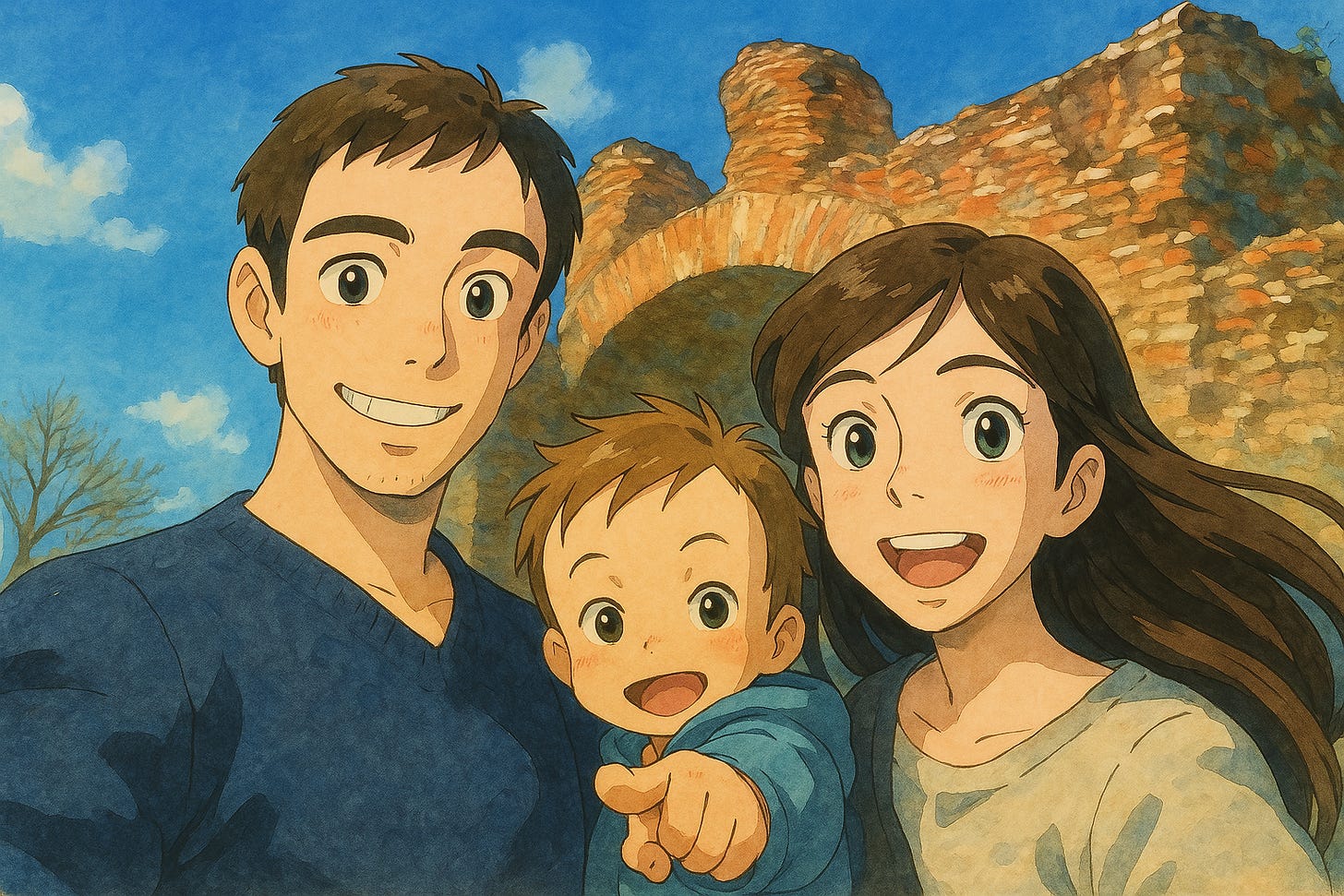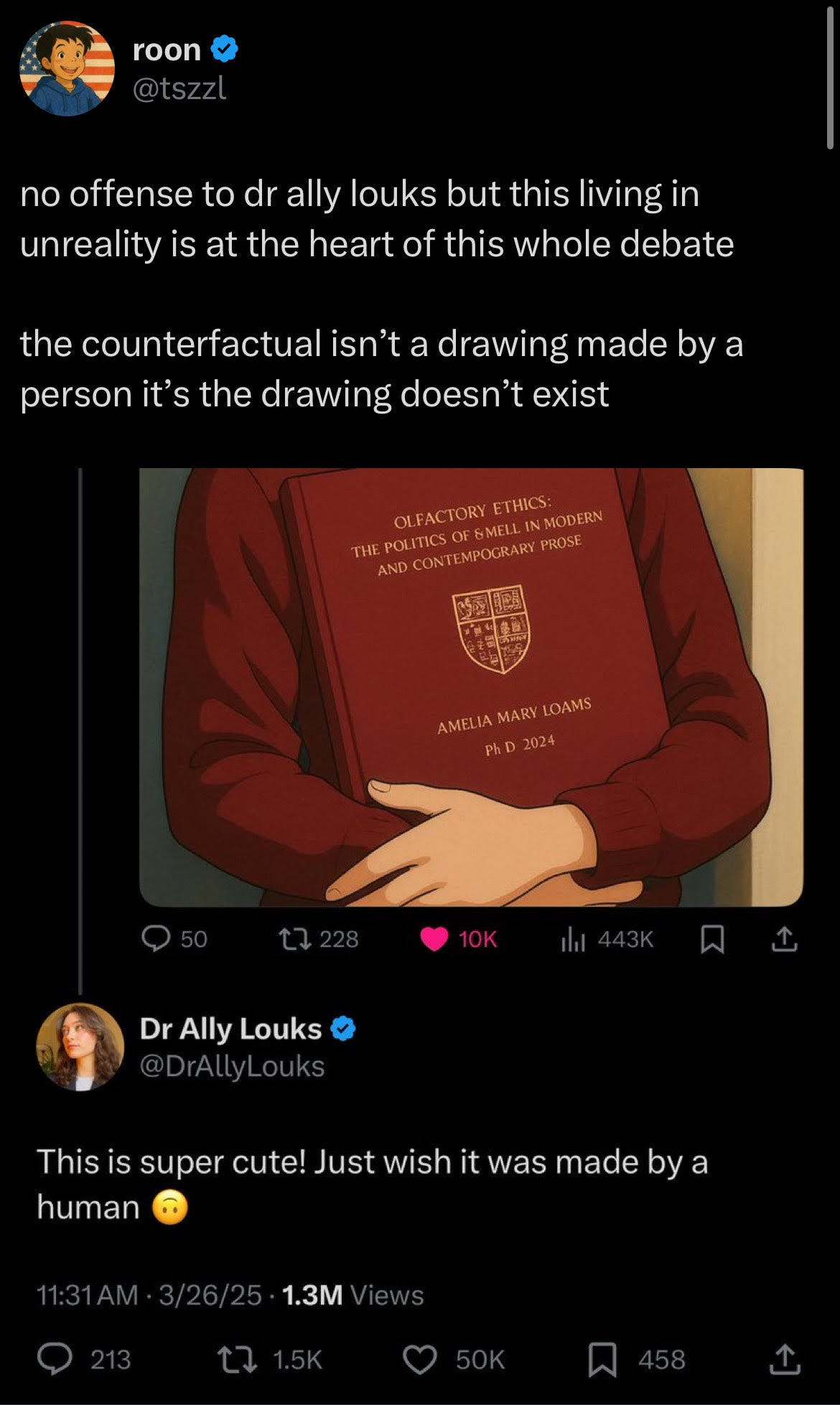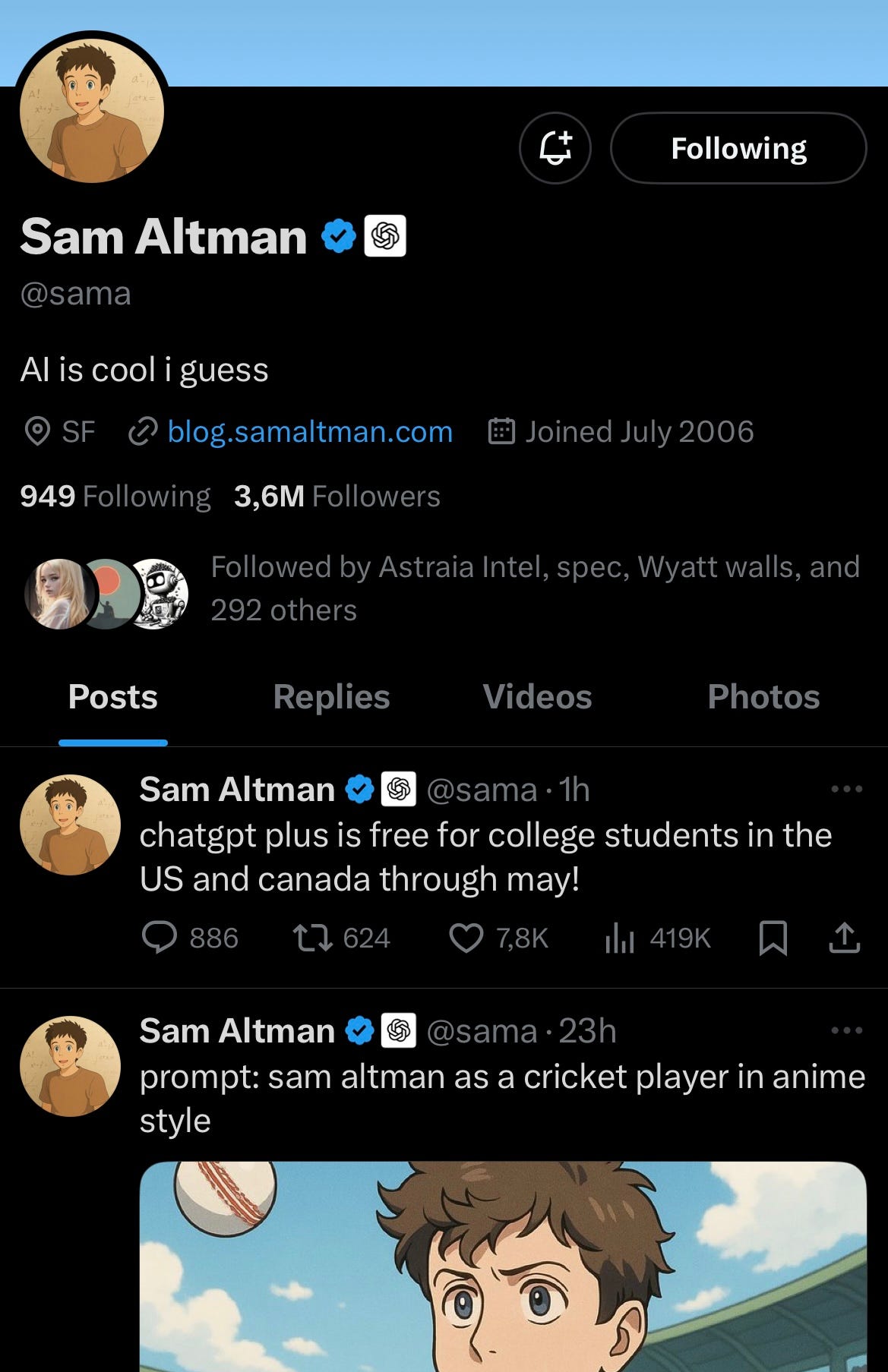The Counterfactual Is That This Image Does Not Exist
A Few Thoughts on the State of GenAI and Copyright
A few months ago, I wrote a Substack post about the ongoing clash between GenAI and Copyright Law where I tried to explain that the current debate is somewhat misdirected, with some taking the side of the authors, others that of the AI industry,1 and the majority remaining blissfully unaware of what is going on. For those who are in the know, it is quite easy to get drawn towards one side or the other; first, because there is undoubtedly a moral dimension to this conflict, and second, because both the AI industry and those who stand to lose from the relaxation of Copyright laws have fairly powerful lobbies.
I will not hide the fact that I sympathize somewhat more with the authors, in part because I do know something about trying to make a living from one’s creative work. A few years ago, I was in a situation where I wanted to earn some extra money to better support my family. I had a job, but to supplement that income, I considered becoming a contractor. The work would have involved translating legal documents from English and Spanish into Bulgarian. It seemed like a worthwhile thing to do: I would practice both my legal skills and my foreign language skills, and the pay per page was pretty good. There was just one problem. As I went through the terms of the contract, something interesting caught my attention. Under this agreement, I would have been required to pass parts of the documents (I assume the more boilerplate-ish ones) through a particular automatic translation tool, I would then have been obliged to go through the output and basically do editorial work for an AI model without being paid anything for those pages or even for just the editorial work. What? In the end, this was a dealbreaker for me, and I moved on to other things. After all, it is a free market, so no hard feelings. But I could not shake the feeling that this one clause in a contract meant that I would not be a translator, and I would not be creating translations. Or, to put it the other way around, those translations would not be created, at least not by me. And therefore, they would not be there to train the next AI model. Maybe another, more talented translator than me took up that offer afterwards.. or maybe not.
Since my last post, there have been quite a few developments regarding the GenAI and Copyright topic, perhaps most notably OpenAI’s position that if AI model training on copyrighted material does not receive a broad fair use cover, then the AI race for the West is essentially over.2 And still, I believe AI remains dependent on the copyright regime in the sense that models need high-quality data to train on, and that means that those who produce this data need a mechanism which in principle makes it possible for them to make a living from their work. Without it, we run a serious risk of a tragedy-of-the-commons type of scenario where creatives produce fewer and fewer quality works, AI models have less and less quality data to train on, and it all spirals down from there. In my view, this is the key point in the debate: You can be an “AI maximalist”, not care one iota about the plight of creatives, but you still need those people to continue practicing their craft.
In this post, I would like to challenge my own argument, drawing on a recent development involving ChatGPT and social media: the so-called ghiblification trend. Most of it will be based on actions involving OpenAI, but it is not my intention to single them out. They are, one could argue, doing what is best for their bottom line in the climate of legal uncertainty surrounding GenAI and Copyright Law that has lead to quite a few (ongoing) legal disputes.3
So, let’s dive into it.
Studio Ghibli, Inc. is a Japanese animation studio based in Koganei, Tokyo.4 The works it produces follow a very distinctive style with warm colors and cute characters towards which one cannot help but feel a sense of friendliness. If you have been on social media during the past few weeks, you are bound to have come across users uploading photos in that style, such as this one:
on holiday with my family, ghiblified
The way to generate images like this one is quite easy: Simply upload a photo to ChatGPT, and prompt it to output another image in the respective style. At the time of writing, this feature is also available for free-tier users. Now, let’s consider what having such capabilities available means in the broader context.
Studio Ghibli has undoubtedly spent an enormous amount of time and effort cultivating and refining their style, and apps like ChatGPT are doing much to effectively commoditize it. But.. so what? Does this commoditization negatively impact Studio Ghibli? If this capability did not exist, would the people all over the world currently generating and posting their ghiblified photos have spent money to have these images custom-created by this company, if that is even a service it provides? Or, as roon put it succinctly on X:
I know I certainly would not have paid to have this image custom-made because I generated it just for fun, and I think it is safe to assume the vast majority of those who generated their own images did it for similar reasons. In economic terms, this would mean that the image only has utility so long as its marginal cost is zero. And anyway, probably no one who enjoys the anime Studio Ghibli produces will stop watching it just because it is now easier to ghiblify images (same goes for other animation studios and their respective styles).
Nevertheless, three points must be made here.
First, we cannot really be sure this elimination of digital scarcity does not negatively impact the artists in some way only because the impact is not immediately obvious.
Second, we need to draw a stark distinction between regular people fooling around, and those in the AI ecosystem who actually make money from this. OpenAI does charge for subscriptions and API usage, it is arguably using the style to promote itself (Sam Altman’s current profile picture on X appears to be in the Ghibli style), and, as far as public information is available, there is no licensing agreement between the two entities.
Third, this is not how property rights, including intellectual property rights, operate in the first place. It is for the author or the owner to decide how their work, respectively their property, can be used (unless the law creates some exception). In general, nobody has a right to barge into my spare apartment and squat there just because I am not currently using it and have no tenants.
I am not sure what happens next, but it seems this trend might have just pushed GenAI’s copyright problem into the mainstream.
It should be noted that there are players who take care that they train their models on properly licensed data and works in the public domain, and for whom therefore no problem exists.
https://arstechnica.com/tech-policy/2025/03/openai-urges-trump-either-settle-ai-copyright-debate-or-lose-ai-race-to-china/
If you would like to follow the ongoing legal disputes in a more structured manner, I recommend keeping an eye on this website: https://chatgptiseatingtheworld.com/
https://en.wikipedia.org/wiki/Studio_Ghibli




